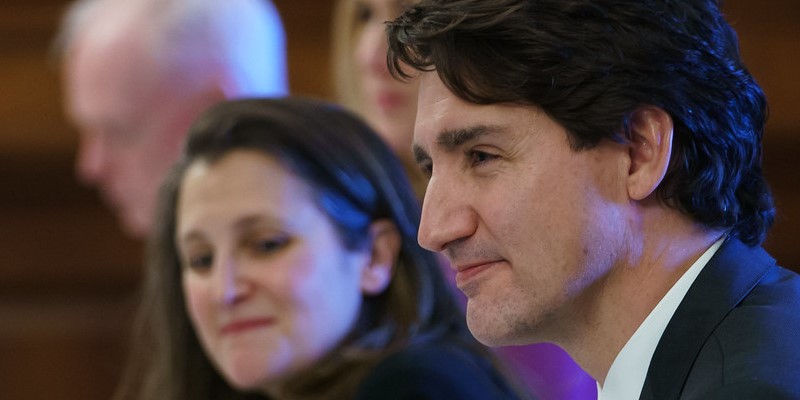Federal government poised to pile on more spending and debt

Next week, the Trudeau government will release its fall fiscal update, which, considering the sorry state of federal finances, should demonstrate a newfound approach to spending and borrowing. But don’t hold your breath.
Although the Trudeau government describes itself as “fiscally responsible,” in reality it has a track record of unrestrained spending and large budget deficits. And it’s overseen the five highest years (2018 to 2022) of per-person program spending (adjusted for inflation) in Canadian history. Even excluding COVID-related spending, 2020 and 2021 remain the two highest years of per-person spending on record.
The Trudeau government has also run deficits every year since it took office in 2015—according to forecasts, this year’s deficit will eclipse $40 billion even though COVID is in the rearview mirror. Consequently, federal debt will have increased nearly $900 billion since 2014/15, up to $1.9 trillion for 2023/24.
While the prime minister and Finance Minister Chrystia Freeland often downplay the level of debt accumulation by noting that Canada has the lowest net debt-to-GDP ratio among the G7 countries (Germany, Italy, Japan, France, the United Kingdom and the United States), this is misleading.
Net debt is calculated as total (gross) debt minus all financial assets, with the implicit assumption that those assets could be used to offset debt. However, the Canada and Quebec Pension Plans (CPP and QPP) are included in the financial assets used to calculate net debt in Canada. But because CPP/QPP assets are needed for existing and future retirees, in reality they can’t be used to offset government debt.
Therefore, a better measure is gross debt, which measures all liabilities that require future payment of interest and/or principal by the debtor to the creditor. Compared to 29 other advanced economies, including the G7 countries, Canada’s gross debt as a share of the economy ranks 20th—meaning Canada is among the most indebted countries.
Clearly, the Trudeau government has been anything but fiscally responsible. And the current levels of spending and borrowing impose real costs on Canadians.
For example, since 2014/15 federal government debt interest costs have nearly doubled—reaching an estimated $43.9 billion, or 9.6 per cent of total revenues, for 2023/24. This means roughly one in every 10 dollars Ottawa collects from Canadian taxpayers this year will go towards debt interest costs, rather than government services or tax relief.
In light of these fiscal realities, if the Trudeau government wants to move anywhere close to a balanced budget in the foreseeable future, it must take meaningful steps in the upcoming fall fiscal update to restrain spending growth.
Unfortunately, this is unlikely to happen.
In a recent report, the Parliamentary Budget Officer (PBO) estimated that, due to spending increases, the federal government will run a deficit of $46.5 billion for 2023/24—$6.4 billion more than the government’s budget projections in March.
The government will also likely include new spending in the upcoming fiscal update meant to address housing and affordability. And will likely soon table legislation on national pharmacare, which the PBO estimates will cost $11.2 billion in 2024/25 alone.
Finally, not only does this unprecedented level of spending rack up mountains of debt, according to Bank of Canada Governor Tiff Macklem, “government spending is starting to get in the way of getting inflation back to target.” In other words, more spending by the federal government to address affordability concerns could actually worsen the problem by keeping inflation (and interest rates) higher than would otherwise be the case, eroding the purchasing power of Canadians.
While Ottawa’s fiscal situation demands a fiscally responsible fall fiscal update, it’s likely we’ll see much of the same next week from the Trudeau government—more spending and more borrowing.
Authors:
Subscribe to the Fraser Institute
Get the latest news from the Fraser Institute on the latest research studies, news and events.


